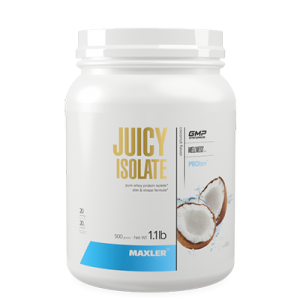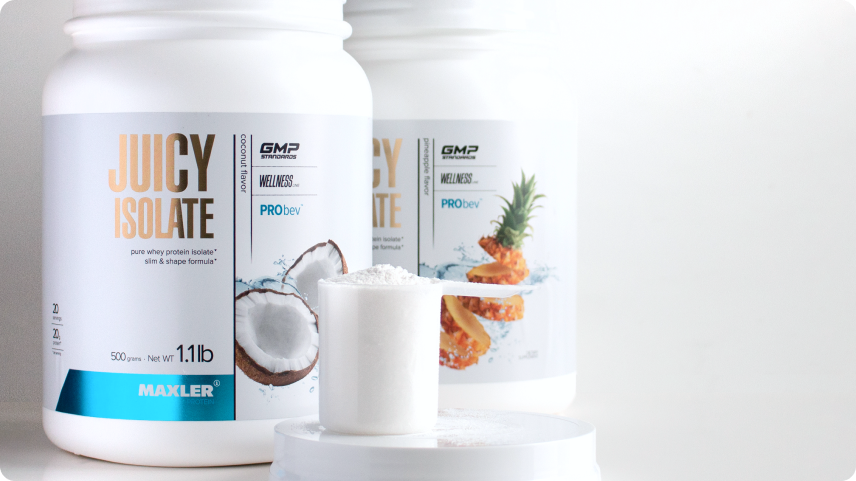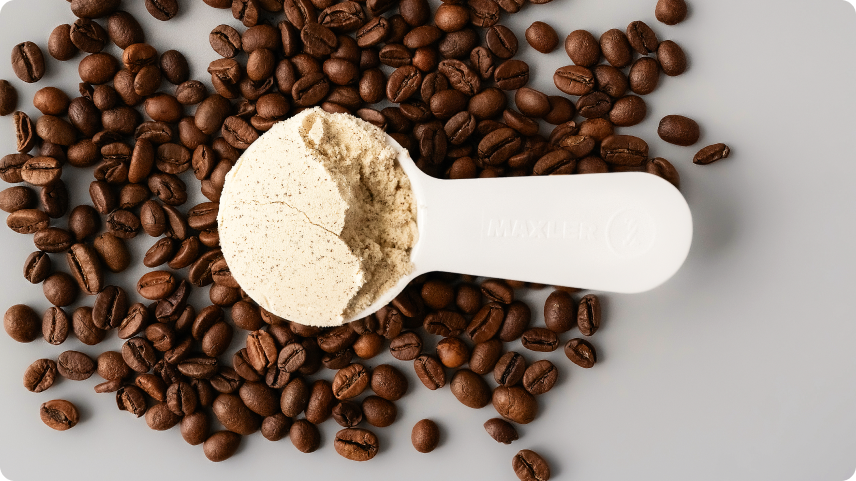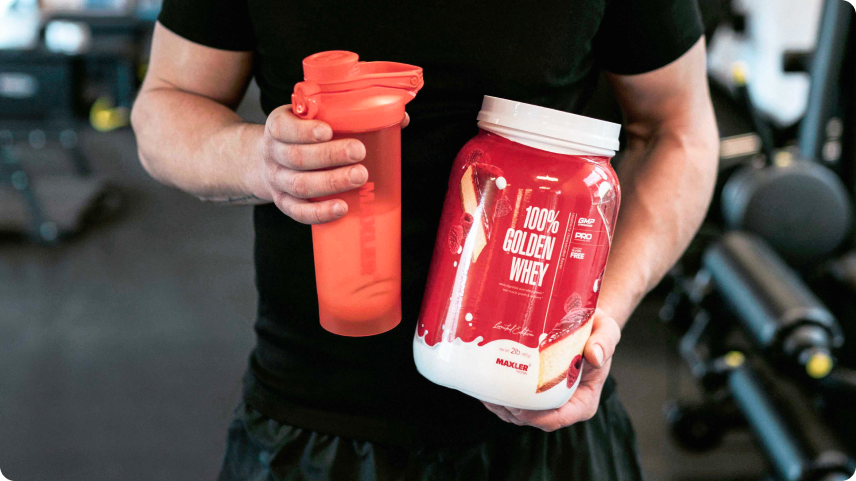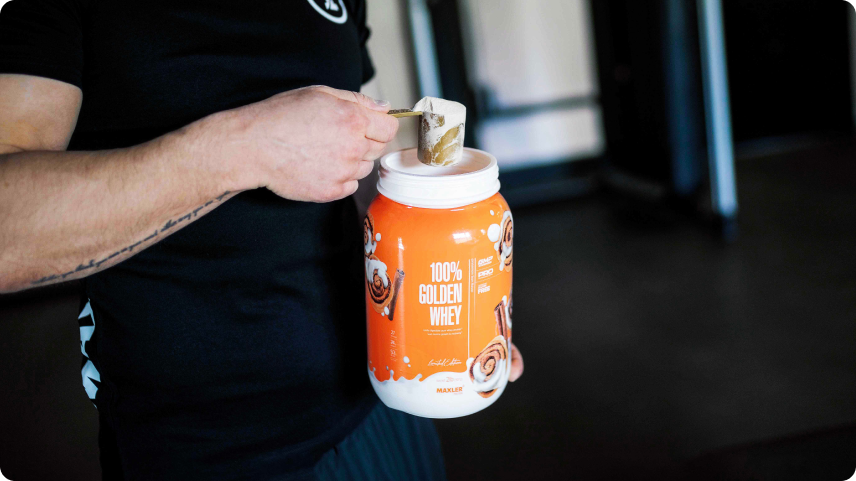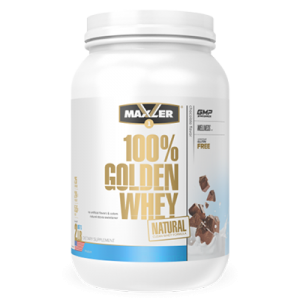How to Choose the Best Protein Powders in 2025
Choosing the right protein powder can be a challenge. What should you look for, and what do you need? These questions may make the process more complicated than it needs to be. We’ve created a handy guide to help you find the right protein powder for your purposes.
What to look for when shopping for a protein powder
Ready to set yourself up for success with a worthwhile protein powder? We’ve assembled some tips on how to choose the best one for you. After all, you deserve nothing but the best.
Protein Content
How much protein is in your protein powder? Does it even matter?
The short answer is that, yes, protein content matters. It may be one of the most important aspects of choosing a protein powder. Protein powders should complement your protein intake from the diet and help you reach your required protein intake levels.
Protein intake is essential for many reasons – learn more about why protein is necessary in our post.
But protein intake goals vary depending on what you’re trying to achieve. They will also affect the protein powder that you choose. That’s because different types of protein contain different nutritional profiles. Protein concentrates are typically up to 80% protein by weight and can contain some sugars and fats. Protein isolates, like Maxler Juicy Isolate, on the other hand, are 90-95% protein by weight, with fewer sugars and fats.
Let’s consider some everyday situations.
If you’re trying to build muscle, you’ll need plenty of protein. Therefore, you may want to choose protein isolates, especially if you’ve already got substantial muscle mass. Protein isolates provide around 27 grams of protein per serving without many calories.
If you’re looking for protein powders for weight gain, protein concentrates can be just the thing. They’ll provide plenty of protein and some carbohydrates and fat, so you get extra calories in. Alternatively, look for protein blends with multiple types of protein if you want more protein than in a concentrate. You may also find gainers helpful.
Looking for the best protein powders for weight loss? Protein isolates may be a great option—they offer higher protein amounts to help you stay full and maintain muscle mass.
If you’re planning to use protein powders for energy, then most protein powders will do the job. Protein helps you stay full and manage your blood sugar levels, which supports feeling more energetic during the day.
Protein Source
Animal or plant? One of the first major distinctions you need to make when choosing protein powders is whether you’re looking for a plant-based powder or are okay with animal products.
Most animal-based proteins are manufactured from milk products or eggs. Egg-based protein powder can be best for those who want high-quality amino acids but cannot eat dairy.
Milk-based protein powders are typically made from two types of protein: whey and casein. These two proteins differ in their digestibility. Whey protein is absorbed more quickly than casein protein. Casein can make an excellent recovery protein powder, especially when taken overnight, due to its lasting feeding of our muscles. Alternatively, some protein powders will contain milk protein on its own, which has both types of protein, whey and casein.
Plant-based proteins are made from plants. Soy protein powders are very common and have all the essential amino acids necessary for our muscles to grow. Alternatively, other legumes can be used to make protein powder. Some standard vegan protein powders include those made from peas or lupin. Other protein powders can be made from rice or even hemp seeds. Many vegan protein powders will contain a blend of the protein sources, as not every vegan protein source has enough quantities of essential amino acids. Therefore, when choosing a plant-based protein powder, looking at the essential amino acid content is vital to ensure everything you require is present.
Digestibility and Side Effects
One of the most important aspects of choosing the best protein powder for you is its digestibility. Ideally, you want a protein powder that is easy to digest and causes no discomfort. High-quality protein powders without ingredients you may be sensitive to are the way to go here. To help with digestibility, Maxler adds a DigeZyme complex to most protein powders. This complex contains multiple enzymes to help you digest the nutrients in the protein powder.
Whey protein powders are typically safe to take. Sometimes, though, they may have side effects. Understanding these can help you make a choice of which protein powder works for you and which doesn’t.
This is primarily a concern for those who may be sensitive to specific ingredients. For example, those who don’t tolerate lactose well can benefit from using plant-based protein powders, such as egg or lactose-free whey protein powders.
The side effects include feeling bloated, tired, and headaches. Other side effects may include increased bowel movements, feeling nauseous or thirsty, reduced appetite, and acne. Some vegan protein powders may cause discomfort, including gas or bloating. This heavily depends on the protein source and your personal tolerance to the ingredients in the protein powders.
Therefore, to help you pick a protein powder, ensure that you:
- Check the ingredient list for any ingredients you’re sensitive to
- Consider protein powders that contain digestive enzymes
- Know side effects to know when to be concerned
If you’re finding yourself unsure about what protein powders to pick or whether what you’re experiencing is a side-effect, it’s a good idea to consult a medical professional.
Ingredients
Ingredients are undoubtedly the most crucial aspect of a protein powder and will likely influence your choice. In general, it’s important to remember that protein powders aren’t controlled by the FDA. Therefore, you should pay attention to ingredients to ensure you’re getting what you want rather than filler.
Protein powders shouldn’t contain many ingredients. Some contain just protein, which can be a great option for those looking for the healthiest protein powders. However, protein doesn’t necessarily have a great taste.
That’s why you’ll often find protein powders containing a source of protein, some sweeteners and flavorings. Some protein powders may have additional thickeners or carbohydrate sources for texture and energy.
Some protein powders, like 100% Golden Whey Natural, contain only natural flavors and colors, making them a health-conscious choice.
Check the list of ingredients for the protein powders you’re interested in. Find protein powders that meet your personal requirements for these products.
Flavor and Taste
Many people may overlook the importance of protein flavor and taste. After all, if you’re just trying to get more protein in, what should it matter what flavor it is?
But don’t make the crucial mistake of selecting a protein flavor you don’t enjoy. If you love the taste of your protein shake, you’ll find drinking it a more pleasant experience. That means you’ll be able to stick to regularly drinking protein shakes, and your overall protein intake will remain consistently high. Sounds great, doesn’t it?
Therefore, pay attention to the flavors of your protein. There are many options on the market, so experiment until you find the one.
The Maxler community knows a lot about good flavor – after all, our protein flavors are a point of pride for us. We meticulously craft and test every new flavor to keep things exciting and ensure you’re getting a fantastic experience with every protein shake.
Maxler 100% Golden Whey is known for its variety of classical and adventurous flavors. We’ve got the classic strawberry, rich chocolate, and our take on vanilla—vanilla ice cream. In addition, we’ve got exciting flavors like chocolate peanut butter, blueberry muffin (a fan favorite), and new developments like cinnamon bun and berry cheesecake.
We’re continuously expanding our flavor range to bring you the best flavors available and prevent flavor boredom.
Price
Price can be the ultimate factor in deciding whether to use protein powder. Let’s speak frankly here—everyone works with a vastly different budget. Therefore, knowing how much you’re willing to spend on a protein powder is a good idea. A protein powder that your friend uses but is out of reach for you obviously won’t be a sustainable choice. Therefore, look around and try to find an option that delivers the macros you want at the price you’re looking for.
Don’t be afraid to experiment with protein powders from different brands until you find one that meets all your requirements.
How To Use Protein Powder
If you’re not 100% sure how to use protein powder, don’t fret. Here’s our version of Protein Powder for Beginners 101.
Protein powders come in powder form. To enjoy them, simply mix a scoop of protein powder with 150-200 ml of water or milk in a shaker. You can change up your liquid type depending on your goals—if you’re using protein powders for weight gain, whole milk will be a great addition. Shake your shaker for a minute or two and let the shake rest. Then enjoy!
If protein shakes aren’t your thing, you can also use protein to enhance many of the foods you eat. Protein is a fabulous addition to your breakfasts—it will help you stay fuller during the day, too. You can add a scoop of protein powder to your smoothie to enrich its protein content. Alternatively, add protein to yoghurt, oats, chia puddings, or even breakfast baked goods!
Choosing the best protein powder for you shouldn’t be stressful. Focus on the most important aspects—protein content, ingredient quality, price, and your dietary requirements. Try multiple protein powders to find one that meets your requirements and tastes great. Remember to stay flexible in your protein powder choice, and you’ll eventually find the right match.
Our Proteins for 2025
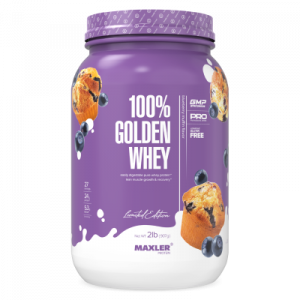
100% Golden Whey
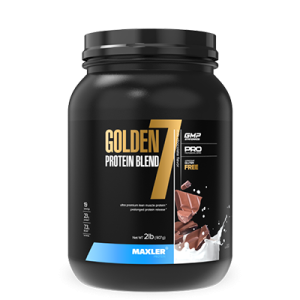
Golden 7 Protein Blend
